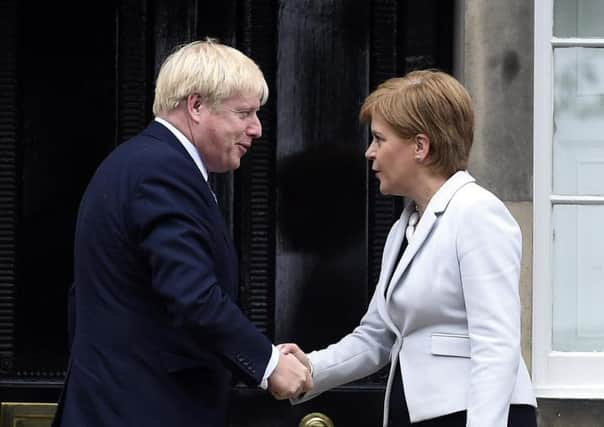Scottish independence: Why practical politics trumps legal theories – leader comment


The question of whether the Scottish Parliament has the right to hold a referendum on independence was very much in the minds of MPs as they passed the legislation that enabled devolution.
The then Scottish Secretary, Donald Dewar, was repeatedly asked in the Commons about this prospect in May 1998 with one MP detecting “a certain tendency to shy away from the specific question”. However Dewar argued “a referendum that purported to pave the way for something that was ultra vires [outwith Holyrood’s powers] is itself ultra vires”.
Advertisement
Hide AdAdvertisement
Hide AdIt is this claim with which constitutional law expert Aidan O’Neill QC has now taken issue in his legal advice to the pro-independence campaign group Forward As One.
While the 1998 Scotland Act specifically states that the “Union of the Kingdoms of Scotland and England” is a matter for the UK Parliament, O’Neill says that simply asking the public for their opinion in a referendum does not necessarily mean that independence would follow. Part of the reason why Holyrood could hold indyref2, he argues, is that even if a majority voted in favour of independence “this decision would have no automaticity”. He adds: “It can... readily be agreed that, as a matter of UK constitutional law, UDI [a unilateral declaration of independence] is beyond the powers of the Scottish Parliament.”
This begs the question whether it would be wise to hold an advisory referendum. From an SNP point of view, a vote for independence with a significant turnout would put pressure on the UK Government. But if there was a widespread boycott by unionists, it would risk creating a Catalonia-style stand-off with some grassroots nationalists and politicians demanding action as the UK Government remained implacably opposed. Tensions would undoubtedly rise.
This is an issue that should only be decided by majority vote in a referendum in which both sides take part so that it is a genuine expression of the ‘will of the people’.
In his advice, O’Neill notes an opinion by Lord Denning in 1971, in which this eminent authority said that “legal theory must give way to practical politics”. This applies just as much to Boris Johnson as it does to the SNP. If the 2021 Holyrood elections produce a nationalist majority, practical politics may mean the Prime Minister eventually has little choice but to give permission for a binding referendum.